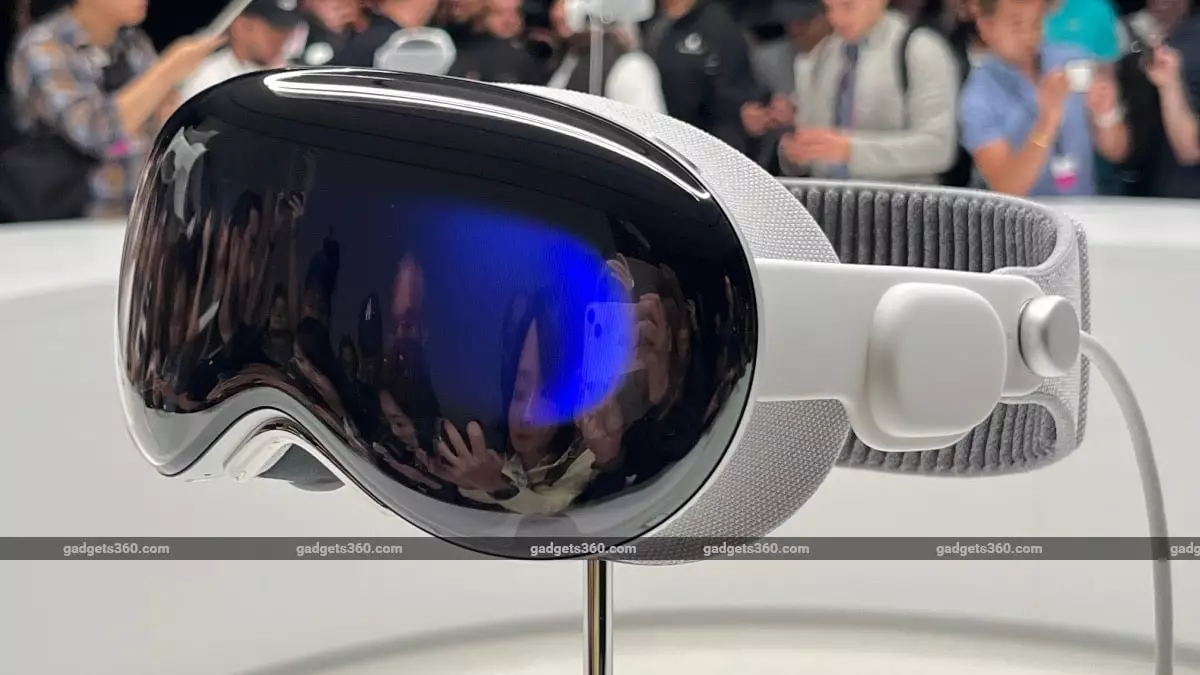In the highly competitive world of technology, Huawei is rumored to be developing its own virtual reality (VR) headset, aiming to rival the Apple Vision Pro. While details can sometimes be unreliable, a tipster has shared that Huawei’s high-end headset will be launched towards the end of 2024, making its mark in the VR market. This article will explore Huawei’s potential in the VR industry and discuss its speculated features and capabilities.
Huawei’s VR headset aims to compete with the highly anticipated Apple Vision Pro, which supports both augmented reality (AR) and VR content. Apple’s device operates on visionOS, a dedicated operating system, offering users the unique experience of interacting with the device using eye and finger-based gestures, as well as a virtual keyboard. However, it is essential to approach Huawei’s rumored VR headset with skepticism since the source of this information, X user Mochamad Farido Fanani, does not have a proven track record of accurately leaking details.
While the specific details of Huawei’s headset remain undisclosed, Fanani’s post suggests that the device will be powered by a “flagship processor.” Although the chip’s identity is unknown, Apple’s first mixed reality headset utilizes two processors: the M2 chip for standard operations and a dedicated R1 chip responsible for processing spatial input from various sources. If Huawei aims to compete in the high-end market, a powerful processor is a must.
According to Fanani, Huawei’s VR glasses will incorporate an internal fan-driven heat dissipation system, ensuring optimal thermal management. This feature is crucial as extended use of VR headsets generates heat, potentially leading to discomfort or even device malfunctions. Furthermore, Fanani speculates that Huawei’s headset will operate on external batteries, similar to Apple’s Vision Pro. This design choice enables users to swap out batteries conveniently, allowing for longer VR experiences.
Huawei is not the only player in the race to develop a VR headset. Fanani reveals that former Huawei sub-brand Honor is also working on their own VR system, though no details about its hardware are available as of now. Additionally, Samsung is reportedly working on its ‘Infinite’ extended reality (XR) headset, set to potentially launch in the second half of 2024. With multiple companies vying for supremacy in the VR market, it will be interesting to see who delivers the most immersive and advanced experience for users.
In recent years, several other tech giants have unveiled their forays into the world of VR and AR. Chinese smartphone maker Xiaomi showcased its Wireless AR Glass Discovery Edition, powered by Qualcomm’s Snapdragon XR 2 Gen 1 chip. This wireless AR glass supports both AR and VR content, boasting “retina-level” displays and innovative AR gesture controls. Furthermore, Oppo, a prominent Chinese brand, launched the Oppo Air Glass 2, which focuses on “assisted reality” by offering voice to text features, real-time translation, and location-based navigation instructions. These past innovations in the VR space set the stage for Huawei’s entrance into the market.
While Huawei’s rumored VR headset shows promise, it is essential to take the information with caution due to the unverified source. Nonetheless, the possibility of Huawei stepping into the VR market is exciting, especially considering the competition it would present to industry leaders like Apple and Samsung. As the demand for immersive virtual experiences continues to grow, it will be fascinating to see how Huawei innovates and whether its VR headset can deliver a revolutionary and captivating user experience.

Leave a Reply